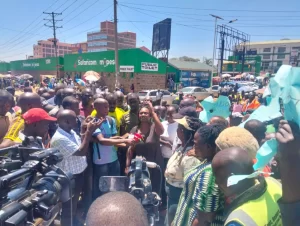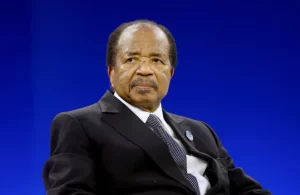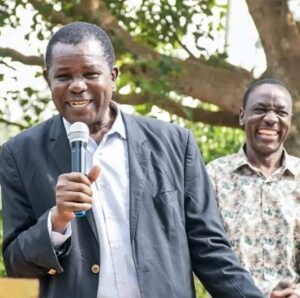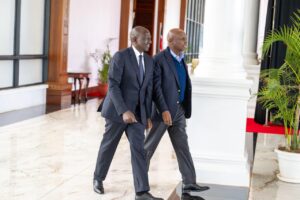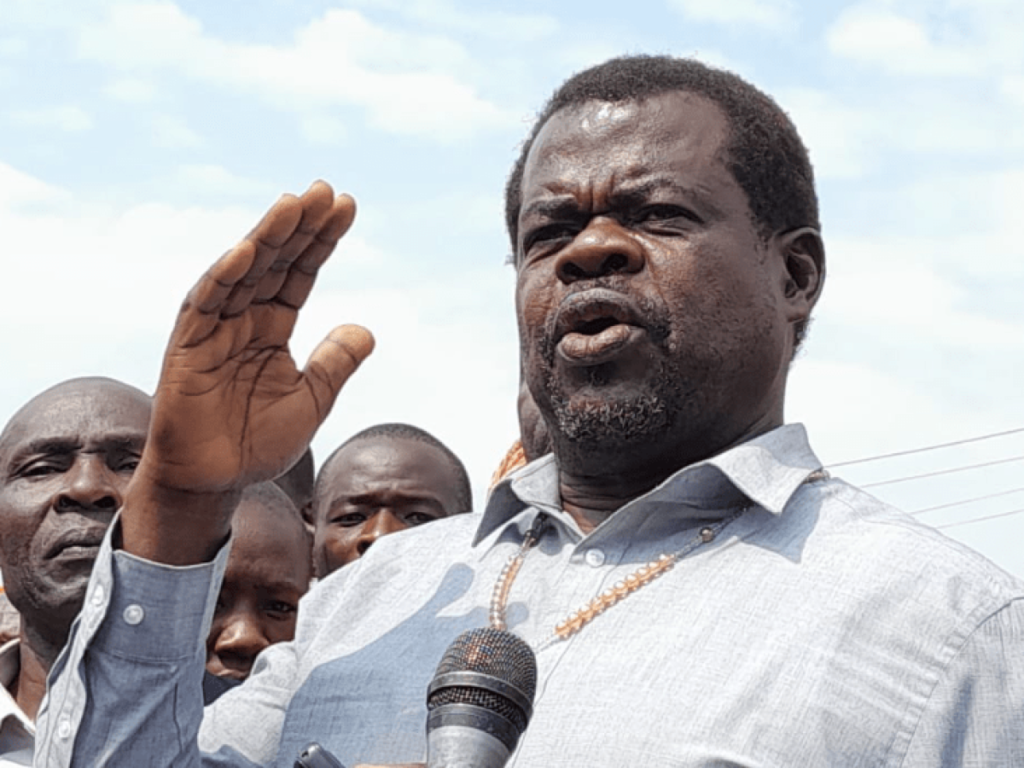
| Emmanuel Barasa |
Busia Senator Okiya Omtatah has formally addressed concerns regarding police conduct during
recent protests that resulted in fatalities and injuries among demonstrators.

In a letter to the Internal Affairs Unit of the National Police Service, he has called for a comprehensive investigation
into the actions of law enforcement.
Omtatah expressed that the reports of excessive force used by police during the protests are deeply troubling. “It is imperative that we uphold the rule of law and respect for human rights, especially during civil demonstrations,” he stated. His demand reflects a growing concern over police accountability in the wake of increasing tensions in the region.
The protests, which initially began as peaceful demonstrations, escalated into violence, leading to
tragic outcomes. Eyewitness accounts suggest that police responded with brutal force, raising
questions about their crowd control tactics. “I saw officers beating demonstrators with batons; it
was horrifying,” recounted one protester who wished to remain anonymous. The senator has
emphasized the need for an impartial investigation to ensure justice for the victims. “People have
the right to express their grievances without fear of violence,” Omtatah added.
In the context of these events, human rights organizations are also voicing their concerns. The Kenya
National Commission on Human Rights (KNCHR) has condemned the use of excessive force by police
and is calling for immediate reforms. “The state must ensure that all citizens can exercise their rights
to peaceful assembly without fear of retribution,” said a spokesperson for the organization. The
KNCHR’s position aligns with Senator Omtatah’s demands for accountability and justice. The social
unrest appears to be highlighting deeper issues regarding police practices in Kenya.
As investigations into the protests continue, residents of Busia are on edge, fearing further clashes
between demonstrators and police. Many community members gathered to discuss their grievances
and seek solutions that could prevent future violence. “We need dialogue with the authorities to
ensure our voices are heard without leading to bloodshed,” stated a local leader. The calls for
peaceful resolution and dialogue resonate in light of the tragic outcomes seen in recent protests.
The community’s desire for change is becoming increasingly urgent.
In response to Omtatah’s letter, the National Police Service has acknowledged the allegations and
indicated that they will cooperate with any investigations. A spokesperson stated, “We take these
allegations seriously and are committed to conducting a thorough inquiry.” It remains to be seen
how the police will approach the investigation and whether they will implement necessary reforms.
Meanwhile, civil society groups are demanding transparency and accountability from law
enforcement agencies. “We need assurance that there will be no cover-up, and justice will prevail,”
said a human rights advocate.
The senator’s letter has drawn attention to the wider issue of police brutality in Kenya, a topic that
has sparked national dialogue. Activists argue that systemic changes are needed to foster a safer
environment for all citizens, especially during protests. “This is not just about one incident; it’s about
a culture of impunity that must be addressed,” Omtatah emphasized in his communication. Public
sentiment is shifting, with many citizens now openly questioning the practices and mandates of the
police. The demand for accountability is becoming a staple of discussions on governance in Kenya.
As the community rallies for justice, the repercussions of this incident may have lasting effects on
the relationship between citizens and law enforcement. Protests have historically played a critical
role in advocating for civil rights, and the treatment of protesters can define public trust in authority.
The recent events have acted as a catalyst for broader discussions about police reform in Kenya.
“The public’s faith in law enforcement hinges on their ability to protect and serve without resorting
to violence,” said a political analyst. The urgent calls for change reflect a collective desire for a fair
and just society.
Media coverage of the protests and the subsequent police actions has also heightened public
awareness regarding police oversight. Journalists have been investigating the circumstances
surrounding the protests, shedding light on the experiences and voices of the demonstrators. “We
must continue to shine a light on these events and hold those in power accountable,” a local
journalist remarked. The role of the press in amplifying community concerns will be crucial in the
days ahead. With increased scrutiny, law enforcement may feel pressure to reassess their strategies.
In the aftermath of the protests, community leaders are urging for peaceful dialogue between
citizens and the authorities. There are calls for community forums where grievances can be aired in
an open environment. “Engagement with the police on community concerns is essential if we are to
move forward,” said a prominent local activist. The focus on dialogue aims to mitigate future
conflicts and foster collaboration. Building trust between citizens and law enforcement remains a
critical goal in restoring community harmony.
Looking ahead, the outcome of the proposed investigations and the public response will significantly
influence future interactions between police and protesters. With voices from various sectors
demanding change, the potential for reform may be on the horizon. “It is the duty of every citizen to
advocate for their rights while respecting the law,” Omtatah urged in conclusion. As pressure
mounts for accountability and transparency, the events in Busia may serve as a turning point in the
ongoing discourse around police conduct in Kenya. The community awaits results with a mix of hope
and apprehension about what lies ahead.
